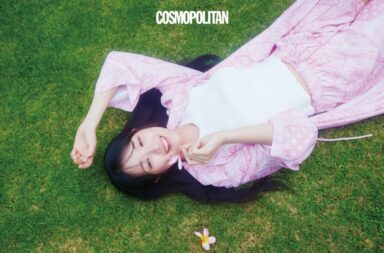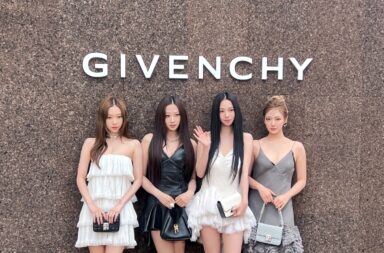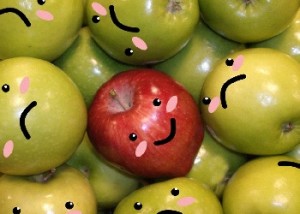 Prolific writer and French philosopher Voltaire said it best about originality; that “[it] is nothing but judicious imitation.” This quote comes to mind whenever a person critiques K-pop, bemoaning that it lacks creativity, substance, and above all, originality.
Prolific writer and French philosopher Voltaire said it best about originality; that “[it] is nothing but judicious imitation.” This quote comes to mind whenever a person critiques K-pop, bemoaning that it lacks creativity, substance, and above all, originality.
Historically, the origins of K-pop are heavily rooted within Western music through its godfather, Seo Taji. Seo Taji and his boys were one of the first to step away from trot, which had dominated the Korean music scene at the time, and used rap, techno, and other traditionally Western genres, to create a version of these genres in Korean. This practice of adopting new musical styles from within or outside of one’s country of origin is nothing new. Musical acts ranging from the Beatles to Lady Gaga have been influenced and used styles from other genres and incorporated within their acts, music from black artists and the 1970’s glam rock scene respectively, creating 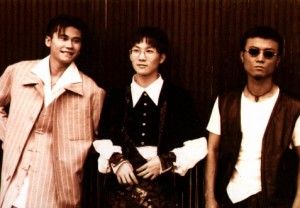 a new genre of music. However, the latter acts managed to create something different and new out of their music genres they were influenced by, while the only difference K-pop currently has made to its Western influence is the fact that it is in Korean. However, Seo Taji took a step further by eliminating the live music factor of Korean music, by creating pre-recorded music which was much more accessible, a tool commonplace in Western music. Manufactured music soon become the norm and with the inclusion of teen idols, entertainment companies could now make music and sell it as a commodity, through Seo Taji’s method, which can be easily replicated through the use of technology. However, this would be that the Korean music scene would be predominantly void of original material, coming for the minds of an artist or a collaboration of artists.
a new genre of music. However, the latter acts managed to create something different and new out of their music genres they were influenced by, while the only difference K-pop currently has made to its Western influence is the fact that it is in Korean. However, Seo Taji took a step further by eliminating the live music factor of Korean music, by creating pre-recorded music which was much more accessible, a tool commonplace in Western music. Manufactured music soon become the norm and with the inclusion of teen idols, entertainment companies could now make music and sell it as a commodity, through Seo Taji’s method, which can be easily replicated through the use of technology. However, this would be that the Korean music scene would be predominantly void of original material, coming for the minds of an artist or a collaboration of artists.
What is originality, and can anyone be truly original? In the Merriam-Webster’s dictionary, originality is defined as: (1) the quality and state of being original, (2) freshness of aspect, design, or style, or (3) the power of independent thought or constructive imagination. Originality also goes hand-in-hand with individualism and creativity. At face value, K-pop would not fit any of these definitions, being an entity manufactured from the minds of corporate giants. Despite having outliers here and there, K-pop is fundamentally a genre devoid of creativity and independent thought. It is a musical genre who appeals to the collective, not the individual. Similar to any commodity, entertainment companies strive to create the product t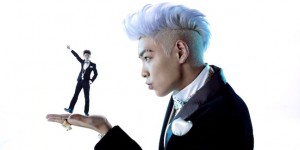 hat is easily consumable, in order to reach as much consumers as possible.
hat is easily consumable, in order to reach as much consumers as possible.
At its most basic, humanity enjoys simplicity and beauty, creating the general formula of K-pop. To be as full of as much fluff as possible in terms of music, which is to be sung by beautiful men and women,who will be referred to as “idols”, causing the general population to be drawn in various aspects. It is not wrong to enjoy pretty things, completely devoid of substance, but it is best to keep in mind that entertainment companies feed upon this, as the demand for idols continues to steadily rise, only increasing supply tenfold. Quantity does not go hand in hand with quality, especially when a company must be able to churn out several singles every year to prevent from being forgotten within the highly competitive field of manufactured K-pop. Entertainment companies are constantly copying each other whenever one company becomes successful. After the success of SNSD, how many subsequent girl groups debuted with songs that were cheap replicas of “Gee?” Although this may simply being a part of a society where conformity is encouraged, this constant repetition of the same music only dilutes any of the crumbs of substance found within the world of K-pop.
Another factor behind the lack of originality within K-pop is that it is controlled by the entertainment companies. They are the puppet masters behind every move an idol makes within the music industry. Even if an entertainment company allows an idol to have some creative input, it is always under the control of the entertainment 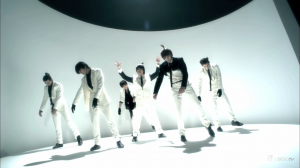 company, in order to guarantee that their material is favourable to the markets. However, it seems like the material that is written or composed by idols seems more of a marketing ploy than giving an idol creative freedom. A song increases in relatability when one’s favourite idol is attached to it. But if it’s such a great marketing tool, why don’t more entertainment companies use it? Perhaps, it is because it’s still a risk to allow for an idol to have creative control over a song, a song that will cost a lot of money to produce. Granted, there have been a lot of songs created by idols that have been a great success, such as “Lies” and “Haru Haru” by G-Dragon, but these idols are not professionals; they were not taught to become composers or writers. Their main purpose is to entertain, and the vast majority were hired because they had a palatable talent, from looking good to singing well, which is a lot easier to maintain and nurture than creating the next great composer and writer. In short, it is much more cost-effective to feed idols manufactured songs, made by professionals, than to allow them to create songs on their own.
company, in order to guarantee that their material is favourable to the markets. However, it seems like the material that is written or composed by idols seems more of a marketing ploy than giving an idol creative freedom. A song increases in relatability when one’s favourite idol is attached to it. But if it’s such a great marketing tool, why don’t more entertainment companies use it? Perhaps, it is because it’s still a risk to allow for an idol to have creative control over a song, a song that will cost a lot of money to produce. Granted, there have been a lot of songs created by idols that have been a great success, such as “Lies” and “Haru Haru” by G-Dragon, but these idols are not professionals; they were not taught to become composers or writers. Their main purpose is to entertain, and the vast majority were hired because they had a palatable talent, from looking good to singing well, which is a lot easier to maintain and nurture than creating the next great composer and writer. In short, it is much more cost-effective to feed idols manufactured songs, made by professionals, than to allow them to create songs on their own.
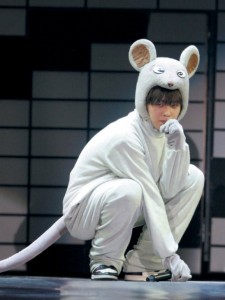 Returning back to Voltaire’s quote, is there a real thing as originality? If you have enough time on your hands, you could practically link any style of music to another. People gain their inspiration from many places, from different art forms or mediums. I think that the main reason why people accuse K-pop of being unoriginal and lacking in substance is because it is created out of the petri dish that is an entertainment company, and not the blood, sweat, and tears of a single artist. The latter causes a lack of connection between fans and the artists. Behind every idol is an entertainment company, monitoring every move they make. So in reality, we are only getting a false representation, or persona of the idol. Creating original music allows listeners to get a chance to see into the minds of the songwriter and composer, regardless if it’s a good or bad song. You can’t relate to an idol because they are wearing a mask over their true self, so they can appeal to the general public. Even in shows like Healing Camp or shows where idols reveal things about themselves, cannot be taken heart because of the scripted nature of these shows. Everything is carefully planned to the tee in K-pop, and nothing is truly real. No idol can truly be themselves, which is why K-pop is considered lacking of creativity and originality. Being original is being true to oneself and expressing oneself. Even when idols dress up outfits that look individualistic, like G-Dragon for instance, it’s basically a gimmick to intrigue K-pop fans. If the vast majority of K-pop fans disliked T.O.P.’s toothpaste hair, I doubt that YG would let him keep his hair that colour for very long.
Returning back to Voltaire’s quote, is there a real thing as originality? If you have enough time on your hands, you could practically link any style of music to another. People gain their inspiration from many places, from different art forms or mediums. I think that the main reason why people accuse K-pop of being unoriginal and lacking in substance is because it is created out of the petri dish that is an entertainment company, and not the blood, sweat, and tears of a single artist. The latter causes a lack of connection between fans and the artists. Behind every idol is an entertainment company, monitoring every move they make. So in reality, we are only getting a false representation, or persona of the idol. Creating original music allows listeners to get a chance to see into the minds of the songwriter and composer, regardless if it’s a good or bad song. You can’t relate to an idol because they are wearing a mask over their true self, so they can appeal to the general public. Even in shows like Healing Camp or shows where idols reveal things about themselves, cannot be taken heart because of the scripted nature of these shows. Everything is carefully planned to the tee in K-pop, and nothing is truly real. No idol can truly be themselves, which is why K-pop is considered lacking of creativity and originality. Being original is being true to oneself and expressing oneself. Even when idols dress up outfits that look individualistic, like G-Dragon for instance, it’s basically a gimmick to intrigue K-pop fans. If the vast majority of K-pop fans disliked T.O.P.’s toothpaste hair, I doubt that YG would let him keep his hair that colour for very long.
Being at its core a product, it’s impossible to believe that K-pop as a whole is a source of creative energy and originality. It’s an industry grounded on selling the shiniest, and palatable product for the mass population. Whenever a single song or concept is considered popular, entertainment companies feed on it and try to replicate their success, by any means necessary. If it means creating a group boasting more numbers than Super Junior, so be it. If it means trumping talent for visual appeal, so be it. For fans, K-pop is a guilty pleasure, not to be completely riveted by a piece of music. It doesn’t need to be original or creative in any way. As long as this mentality stays, entertainment companies to suck the K-pop market dry until something new piques the interest of the majority.
(Korea Pop Wars, Wikipedia, echoandboom, Osen)

